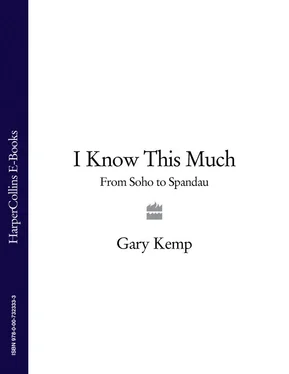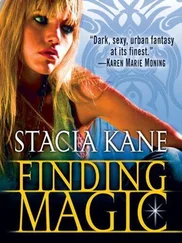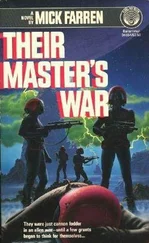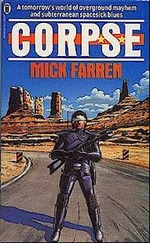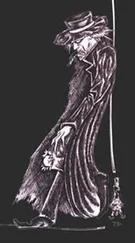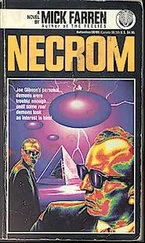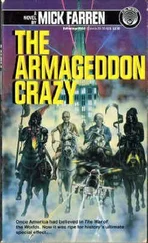Apollo, though, was everything. The Christmas before, my family had all sat spellbound in front of our small television as Apollo 8 vanished into radio silence around the dark side of the moon, a phrase coined especially for a child’s imagination, and we waited, gripped, for its return.Man had never been so far from home and those men had taken my imagination along with them. Sitting in awe, new presents suddenly ignored, we listened to Commander Jim Lovell, floating in a black sea of risk, reading to us across the void from the book of Genesis. The following summer I was woken early to see black-and-white ghosts walk upon the moon. My father cried. We watched it over and over until the morning came and the magical moon faded from outside our window.
My lunar module also needed a bit of space to be successfully manoeuvred and in our front room that wasn’t easy. It would often catch its leg on the net curtains. But if I were careful with its flight I could edge it along the drinks cabinet, with its purely ornamental miniatures and solitary bottle of Stone’s Ginger Wine, over my father’s News of the World as he read it, past the budgie, perched proprietorially on the paper’s edge, and down over the floral-patterned settee towards the moon surface in front of my father’s slippers, while trying not to go too near the heat of the glowing electric fire with its shadowy flame effect. The right side of the plastic coals had, sadly, broken, but the other side benefited hugely from the spinning device that created the ‘flames’ and added a greater sense of homeliness to our lives. One electric bar out of the two was always cold and ash grey whatever the weather, thus saving my parents the money to buy toys for their two boys, like Lunar Landing, or guns that shot ping-pong balls around corners.
But on this Christmas morning of 1970, no toys appeared for me. My younger brother Martin was rapidly tearing the wrapping off the presents that had been delivered soundlessly into the pillowcase he’d left at the foot of his bed.My pillowcase, on the other hand—and to my horror—was empty. My father winked knowingly at me and left the room while my mother helped Martin eagerly unwrap an endless procession of gifts. My toy was obviously so huge it couldn’t fit into any pillowcase, but my heart sank as Dad sheepishly returned with something clutched awkwardly to his chest: a guitar. He looked as though he were about to dance with it.
‘We thought you’d like this,’ he said, turning it around in his hands.
I found it hard to hide my displeasure. It wasn’t even wrapped.
‘We saw you playing with your cousin’s toy guitar and thought you’d like a proper one.’ He could see he had some convincing to do and held it out gingerly towards me.
My childhood felt over. Was this to presage a future of socks and underpants for Christmas? I accepted my fate, took the guitar and sat it in my lap. It smelt of polish. Furniture smelt of polish, not Christmas presents; this was something adult, belonging to a world I wasn’t sure I wanted to enter yet. My arms clumsily wrapped themselves around its curvaceous body with its two ‘F’ holes like mournful, drooping eyes. Scratches on its tobacco-brown skin revealed that I wasn’t the first. It had its own story and I immediately felt pity for the thing—it was made to play beautiful music, but it had found itself in the hands of a disappointed child.
Nobody in the known history of the Kemps or Greens—my mother’s family—had ever played a musical instrument. I had attempted the descant recorder for one term, until I found myself at a junior school concert standing in a pool of my own drool while playing ‘Sloop John B’. A dripping recorder does not do much for a young boy’s standing among giggling schoolgirls.
But we were the proud owners of a radiogram—an old-style record player-cum-radio that fitted my mother’s brief of looking like a piece of furniture. When this highly polished example of veneered technology was not in use, it became a plinth for chalk ornaments, frogs made from seashells, and a miniature glass lighthouse filled with coloured sands from the Isle of Wight, all placed strategically by my mother on lace doilies. Our record collection was sparse and mostly never played: a Frank Sinatra anthology that had lost its inner sleeve; a rollicking Billy Cotton album of innuendo-filled music-hall standards called Wakey Wakey! , plus some random Matt Monro, Patsy Cline, and Dave Clark Five singles, some of which had lost their centrepieces. To play these, one would have to place the record as centrally as possible upon the deck, and then suffer the wow and flutter as it gradually ellipsed in ever-expanding orbits around the spindle. The radio part of this dual wonder was more often used, and appears quite vividly in one of my earliest memories.
October 22 1962 was six days after my third birthday. My memory starts with my father leaning into the radiogram and tuning into the one o’clock news. He’d come home from work on his ‘dinner break’ but was agitated and I must have felt this as I’d followed him across the room, attempting noisily to get his attention. I watched as, hushing me, he stared hard at the amber-lit panel, hungry for the information its warm, authoritative voice was delivering. And then Dad said, ‘There might be a war.’
I can assume that his statement shocked me, even at that age, as why else should it be so deeply branded upon my memory? So real was the nearness of the last war that even as a three-year-old it was a concept I had already began to grasp—and fear. But I suppose what stunned me most of all was that first shocking experience of witnessing my father’s vulnerability. My superman, the one whom I thought I could absolutely rely on for constant protection, was frightened. Something one day might slip through the protection of our perfect world and destroy it, and even he couldn’t stop it.
It was the Cuban Missile Crisis and, of course, the man who could save the world had an American accent. Kennedy never joined the list of heroic characters that I tirelessly embodied in the playground, but his assassination the year after became another early memory, primarily because it stopped the TV and instead of Top Cat , The Beverly Hillbillies or Supercar , I was forced to stare at a photograph of him, silently being broadcast across the channels.
I was born at St Bartholomew’s Hospital within earshot of St Maryle-Bow’s bells on 16 October 1959. No one seems to remember at what time, for like all things to do with childbirth or war it was never spoken about and eventually forgotten. I was brought home to a house in Islington that was more connected with a Victorian past than any nuclear present. It belonged to an era of austerity that was yet to taste the ‘white heat’, or even the white goods, of the technological revolution. It seems hard to imagine now, but this central-London dwelling would not have electricity until 1960, when my father and his brother finally connected us to the modern world, so I must picture myself entering 138 Rotherfield Street by the yellow shroud of gaslight.
My father, Frank, had lived in this early nineteenth-century terraced house since 1945, when, as a fourteen-year-old, he had moved there with his father and mother and his brother, Percy. His two sisters had already moved into their own marital homes, while his older brother, Bill, was away fighting in Burma, a war from which he would never fully recover, or mentally leave, until his death in 2008.
I have a picture of my paternal grandmother, the wonderfully named Eliza Ettie Ruth Crisp, taken in 1912 when she was aged sixteen. Her large, moon face looks slightly bewildered by the photographic situation she’s been thrown into. She’s dressed in the high white collar, lace apron and bonnet of a girl in service—a maid. She sits, her hand resting awkwardly on a book—undoubtedly under the direction of the studio photographer—giving her the look of being caught reading during a break in work. I can just see the book’s title on the spine and I take a magnifying glass to discover what it might be. It leaves me a little saddened and with a feeling that she’s been slightly humiliated as the title’s two words enlarge into focus: Stickphast Cement . Of course, it would be a surprise if Eliza had ever read or owned a book other than the family Bible.
Читать дальше
